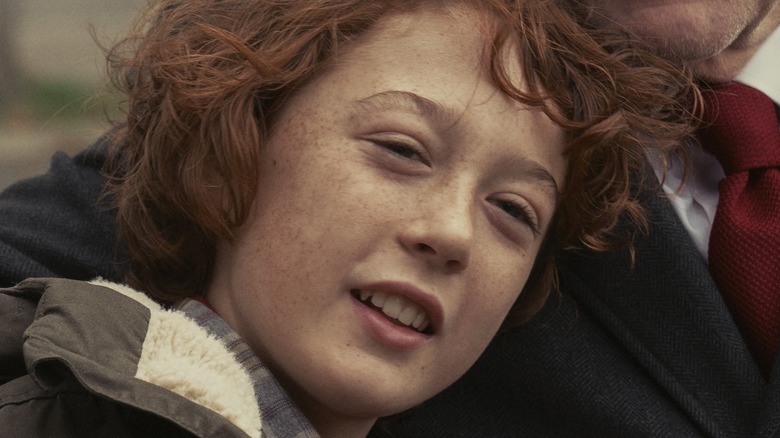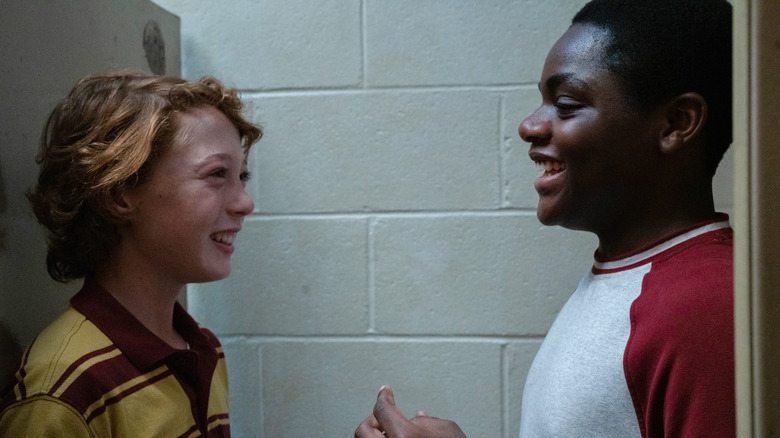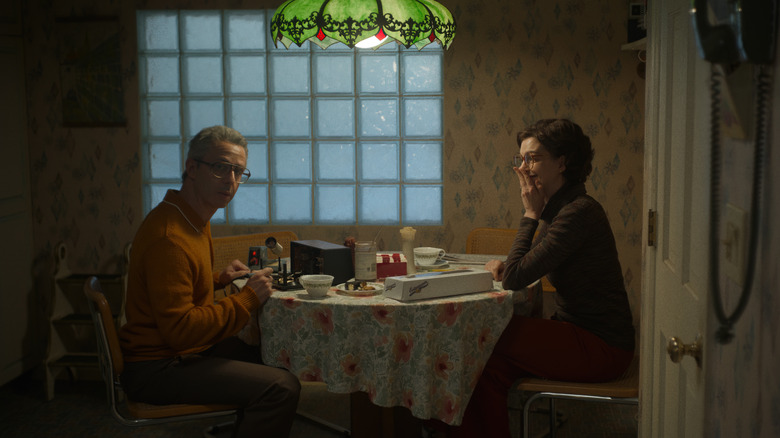Armageddon Time Review: The Life Of James Gray Put On Display
- Strong performances from the ensemble cast, especially child stars Banks Repeta and Jaylin Webb
- Attention to detail in recreating 1980s America
- Occasionally aimless storytelling
- Unsubtle messaging
There must be something in the air. It seems like so many high-profile directors have cast a sentimental eye at their own childhoods this year: Alejandro González Iñárritu with "Bardo," Steven Spielberg with "The Fabelmans," and now James Gray with "Armageddon Time," which screened at New York Film Festival. A slightly fictionalized version of his youth growing up in a New York suburb on the cusp of the greedy '80s, "Armageddon Time" captures not just the coming-of-age story of a preteen boy, but a broader examination of injustice, privilege, and what it means to pursue the American dream. A film that is not afraid to make its characters unlikable, it occasionally suffers because of the emotional distance between them and the audience. Nonetheless, it features strong turns from its adult cast and star-making performances from Banks Repeta and Jaylin Webb.
Paul Graff (Repeta) is a preteen with his head in the clouds. In a perfect world, his artistic temperament would be nurtured and his inability to focus treated with understanding, but at his overcrowded middle school — with a teacher who's clearly only interested in students who fall perfectly in line — he runs the risk of falling through the cracks. Paul finds himself naturally drawn to Johnny (Webb), a young Black boy who has been held back once already and has been written off not just by his teacher, but society in general. When he causes any disturbance (or worse, when someone else causes a disturbance, and he is blamed for it), he's removed from the group, making it impossible for him to ever catch up — and at a certain point, he stops trying. The two develop a close bond with one another as two outcasts who aren't appreciated for their many positive qualities.
Privilege and the American dream
Unlike Johnny, Paul is on a path to success even if his parents, Esther and Irving (played by Anne Hathaway and Jeremy Strong), need to drag him there kicking and screaming. They are determined that he should make something of his life and are committed to giving him every opportunity to get a leg up, eventually sending him to a private school that seems to serve no other purpose than churning out sociopaths. Even Paul can tell that there's something unsettling about his Hitler Youth-esque classmates, who casually throw around racial slurs and cheer ecstatically when members of the Trump family (yes, really) show up on campus to give them inspiration speeches about how they've earned everything they have (again, really).
This is director James Gray's memory of the American Dream in 1980, a time when the last echoes of the turbulent 1960s finally died out, and the compassionless greed of the Reagan era fully took root. Although the events of "Armageddon Time" aren't a direct translation of his own childhood, it's clear that many of the themes are close to Gray's heart. It captures a moment in time when he, as a child, was just beginning to grapple with big issues of racism, social inequity, and the complicated privileges of getting an arbitrary leg up because of circumstances beyond his control.
His family is Jewish, and everyone in the family bears the generational trauma of what that entails — especially his grandfather, played with warmth and kindness by Anthony Hopkins, who recounts the violence and oppression of his heritage in an effort to teach Paul about the kind of person he should be. In spite of the obstacles his family has had to overcome (or perhaps because of them), they don't hesitate to use the privilege that they do have that gives them an advantage over people like Johnny. All of Paul's attempts to navigate the multicultural city around him are tinged with both subtle and spectacularly unsubtle racism — part of his coming-of-age journey is learning that there will always be people willing to bail him out when he gets into trouble, and there are others for whom the exact opposite is true.
Almost profound
"Armageddon Time" is filled with strong performances, especially those of its two child stars, who take on the roles of Paul and Johnny with such a natural sense of charm and camaraderie that it's easy to buy into their friendship from the very beginning. Webb as Johnny in particular exudes such a genuine warm-heartedness that makes the plight of his character all the more devastating. With the two characters next to each other, it's clear how much he would be capable of achieving if he had the resources that Paul has at his disposal.
That said, there's an argument to be made that James Gray's pseudo-memoir is not quite as profound as he thinks it is. Would he have found this story compelling enough to tell on the big screen if it wasn't his? We've certainly seen this sort of coming-of-age story before, with the horrors of racism painted in broad strokes but told from the safety of a white suburban community. There are pockets of this film — moments, really — that touch upon something genuinely meaningful, mostly thanks to the strong cast that supports it. But there are also plenty of stretches that feel ever-so-slightly muddled and directionless, preventing "Armageddon Time," which is generally quite a good film, from reaching its full potential. Much like Paul, it has its head in the clouds, only occasionally dropping down to earth long enough to make an impact.
"Armageddon Time" is available in select theaters beginning Friday, October 28 and will expand nationwide on Friday, November 11.


